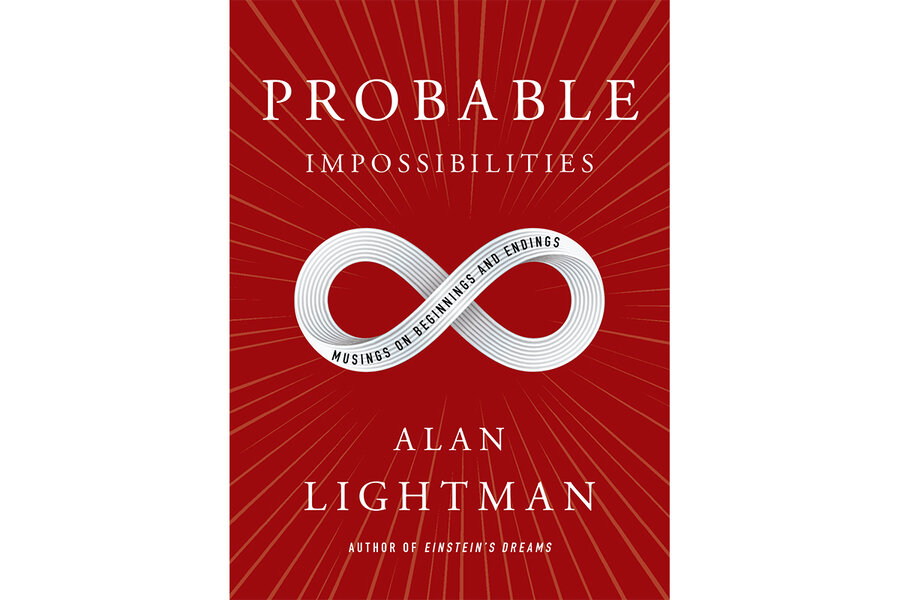Cosmic grandeur pervades Alan Lightman’s ‘Probable Impossibilities’
Loading...
I finished “Probable Impossibilities: Musings on Beginnings and Endings,” Alan Lightman’s newest essay anthology, on a camping trip high in the Blue Ridge Mountains – an especially appropriate setting, I came to find.
Just a few feet from the campfire, and light-years below Orion’s Belt and the Big Dipper, I stared at the night sky between chapters and engaged in that age-old human pastime of wondering at the size of the universe and my relative insignificance in it.
The anthology, which covers a mix of history and physics, is organized into 17 related essays that explore the seeming paradoxes inherent in an ineffably large cosmos. Through vignettes and journal entries, Lightman offers observations in a tone that is edifying and companionable – a bonus for those of us who are not theoretical physicists like the author.
In particular, Lightman’s colorful similes – strewn like Easter eggs throughout the essays – offer greater understanding. It’s much easier to grasp Einstein’s general theory of relativity, which posits that “geometries of space and time are affected by mass and energy,” when Lightman explains that “a mass like the Sun bends space the same way that a bowling ball on a trampoline sinks and flexes the mat beneath it.” Those everyday comparisons really help.
The small human details Lightman includes about his interviewees are also delightful. Alexander Vilenkin, a subject of the essay “What Came Before the Big Bang,” isn’t just the director of the Institute of Cosmology at Tufts University near Boston; he’s the professor with an Einstein doll from his daughter that sits on his jumbled office bookshelf.
But there are moments when the mix of intimate reflection and cosmic material feels unbalanced. The middle of the collection enters the doldrums when Lightman’s essays give too much attention to his personal life and lose a sense of galactic wonder.
The occasional repetition of words and ideas also trip up the collection. Must every scientist, artist, and mathematician be introduced as “the great”? Isn’t “a thousand billion” more easily called “a trillion”? Lightman also references the same passage of John Milton’s “Paradise Lost” more than once.
Still, curious readers will likely find ample room to marvel at peculiarities of the universe. For example, the number of neurons in the human brain (100 billion) is roughly the same as the number of stars in any given galaxy.
Lightman’s work is an invitation to wonder and to marvel at the universe’s scope and our limitations in understanding it. In theoretical physics, there are rarely definite answers, but that’s no matter. “With the luxury of true freedom of mind, there are larger concerns,” he writes. “Look at the sky.”









